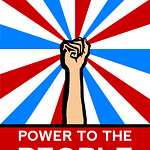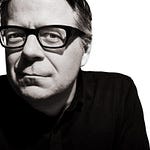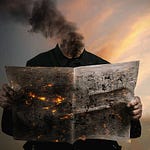vol. 2 issue 36
Ritual is the way to connect to the sacred in all relationships; they help us live out our meaning on a daily basis.
-Gwendolyn Reece, PhD, High Priestess of the Assembly of the Sacred Wheel
Greetings,
Baptism of fire. Dark night of the soul. Wrestling with the angels.
There was a time when the advent of a spiritual crisis, one that challenged our sense of what matters in life, was viewed as an honorable experience that marked the intersection between our human struggle and the divine. Crises once were widely seen as opportunities to move forward in our understanding of ourselves in relationship to our soul and spirit, to others in our lives, and to the world at large and all things seen and unseen, within it.
Not a religious person, nor one to speak in terms of God, I do believe that as I have aged, I have witnessed a national calamity where the more materialistic and reductionist we have become, the more our spiritual crises have become a cause for shame. Frequently, they are even cause for diagnosis.
Yet, there will never be enough pills or mental health personnel to meet the demand for help through the acute existential crises so many of us are experiencing right now while the coronavirus, our pathetic response to it, and the teetering economy, have all laid bare just how shallow our sense of national purpose is, and has been for some time.
We are all living in communities fractured by the angry identity-driven rhetoric from across the political spectrum, by the fall-out of misappropriated resources, graft, corruption, and too few solutions for problems that therefore seem insurmountable.
Too many of us do not feel empowered, and so we feel hopeless. Feeling hopeless is a well-established signal of suicidality at the extreme, or more likely, depression.
This publication was founded as a way to discover why anxiety and depression, particularly the existential kind, are so rampant in this nation. Through two volumes and nearly 100 essays, I have docu-mented policies and political stances, showing how the crises are due to how we have focused too hard for too long on the material, but not on what matters. We’re not even sure any more what that means: we know something is wrong, something is “the matter”, but what?
And why does not knowing seem to hurt so much?
How do we restore hope? How do we prevent losing it? I believe these questions are inextricably tied to our sense of mattering as a nation, our communal raison d’etre.
By nature, spiritual crises are disorienting. But I believe they are especially chaotic in our society now. That is because such crises mark times of weakness, and after years of having to grind it out, especially after the financial leveling we took in 2008, in order to survive, weakness of any kind has become a liability. Our national fear of being vulnerable started becoming pathological, I would suggest, after 9-11 when we were attacked on our own soil, scaring us to bits and riling us up in search of those we could punish. These are not the only events that have brought us to this point, but as we have docu-mented over the past two years, they factor largely in why we have a presidential obsession with winning.
A pathological fear of weakness is our national sickness, not just his.
But ironically, all this winning, and especially this fear of being “soft”, has left us that much more at risk: we don’t know what to do when we are broken, and so when something like the coronavirus hits us in the face, we are easily smashed to bits.
Rituals, just like rites of passage, used to be what our ancestors used to contain the chaos of having one’s world view shattered. Rituals offered us tools to move through, to reconnoiter, and to heal.
I believe it’s time we consider how ritual might help us as a nation weather what has befallen us and what is yet to befall us. These crises may come through no fault of our own, and at other times, very much by our own choices, however ignorant or calculated they may have been. The point is not to blame, but to heal and become wise.
A national soul retrieval is certainly not where I intended this online journal/journey to take us when I initially began it in early 2019, fresh off my career as a health policy and economics reporter, but here we are.
If you’d like to read the more policy wonkish stuff, and also listen to the very policy-oriented podcasts, please do go through the approximately 100 essays and podcasts in the archives, because they give a good foundational understanding of how we here have mapped and docu-mented the connections between bad policymaking and lack of soul and spirit.
Now, let’s focus on what was lost to our fixation on the material and on winning. What healing tools, soulful questions, character traits, and positive vulnerabilities have we left behind, forgotten, or stashed away where no one would dare suspect we keep them? Let’s retrieve those things. What is still useful? What, after careful examination, can we discard? What do we need to develop that we don’t already have? Added together, how might these tools help us frame what truly matters, ground it, and move forward to develop it?
My first guest in this series intended to heal the american (little “a”) state of mind before we return to mapping it, is Gwendolyn Reece, PhD. She is a high priestess with the Assembly of the Sacred Wheel, a pagan organization in the mid-Atlantic region. Dr. Reece, who is also an associate librarian at American University, is based in Washington, DC.
Among the many important tactics for this soul retrieval mission that Dr. Reece and I discuss, these are the highlights:
The concept of a national miasma, or “spiritual pollution” and how art as ritual helps clear it through collective catharsis.
How ritual was used to clear the miasma in the first Western democracy, Athens.
That ritual and policymaking must be applied in concert if there is to be effective cultural change.
How democracy, once cleansed, must maintain justice for all by putting all before the law.
The importance of separating church and state, and how the ethereal works together with science to improve society.
Why staying local to solve problems is more effective than too-large enttities, and how what happens locally filters up.
The critical nature of asking the right questions that will direct us toward our national purpose, the relationships that will support that, how to build community around these relationships, and how to solve the paradox of many visions with only one nation.
Practical examples of what starting with ritual and then leading to policy changes might look like, such as with food and water supplies, or labor force structures, might look like.
The dangers of “lofty talk” about being spiritual, but in actuality not demonstrating care and kindness for one’s neighbor.
The importance of starting “where you are” to affect change.
The notion of politics as applied ethics and how discussions about value are the an antidote to identity politics.
How can Pagans, Scientists, and Evangelicals work together?
What examples of systematically living in an ensouled society do we already have, including Rudolf Steiner’s Waldorf Schools?
And more.
If you’d like to learn more about the classical Greek tradition of ritual healing through theater, this concise video by Dr. Reece discusses how this is achieved by Aeschylus in The Oresteia.
Here is a New York Times feature on the use of the Oresteia in particular, and Greek tragedy in general, to help heal war-torn cities such as Mosul, Iraq.
For more about the Rudolf Steiner and anthroposophy, his comprehensive system for building and sustain an “ensouled” society, visit here.
To learn more about the sacred rite of initiation across many cultures, and how it might be applicable to a new America, visit Dr. Reece’s video here.
For more about the Assembly of the Sacred Wheel, visit here.
For more on Dr. Reece’s own work dedicated to Athena and Apollo, visit here.
And, to learn more about how the Wiccan tradition builds community, there is a conference scheduled in 2021. Learn more here.
A dystopian short story I wrote years ago and published in 2018 in the fiction anthology Grace and Gravity, speaks to the idea of a collective catharsis. Here’s an interview I gave about the piece I wrote, and information on how you can obtain a copy of the anthology where it appears.
The transcript of this conversation will be available soon for patron subscribers. These videos are not “quick hits”. They are neither rushed, yet neither do they meander. They take the time necessary for subscribers to learn new ways of thinking, new questions to ask, and new processes to consider adopting. My intention is to create an entire library of such videos that soon will live behind a paywall. Not a formal curriculum per se, but a collection of topics that together add up to a comprehensive line of inquiry on how to rebuild a better democracy. For now, this is freely available to the public. As you probably noted, I have also included the audio only, in case you prefer to continue just listening to podcasts.
Thank you so much for your time and interest.
Peace.
Whitney










